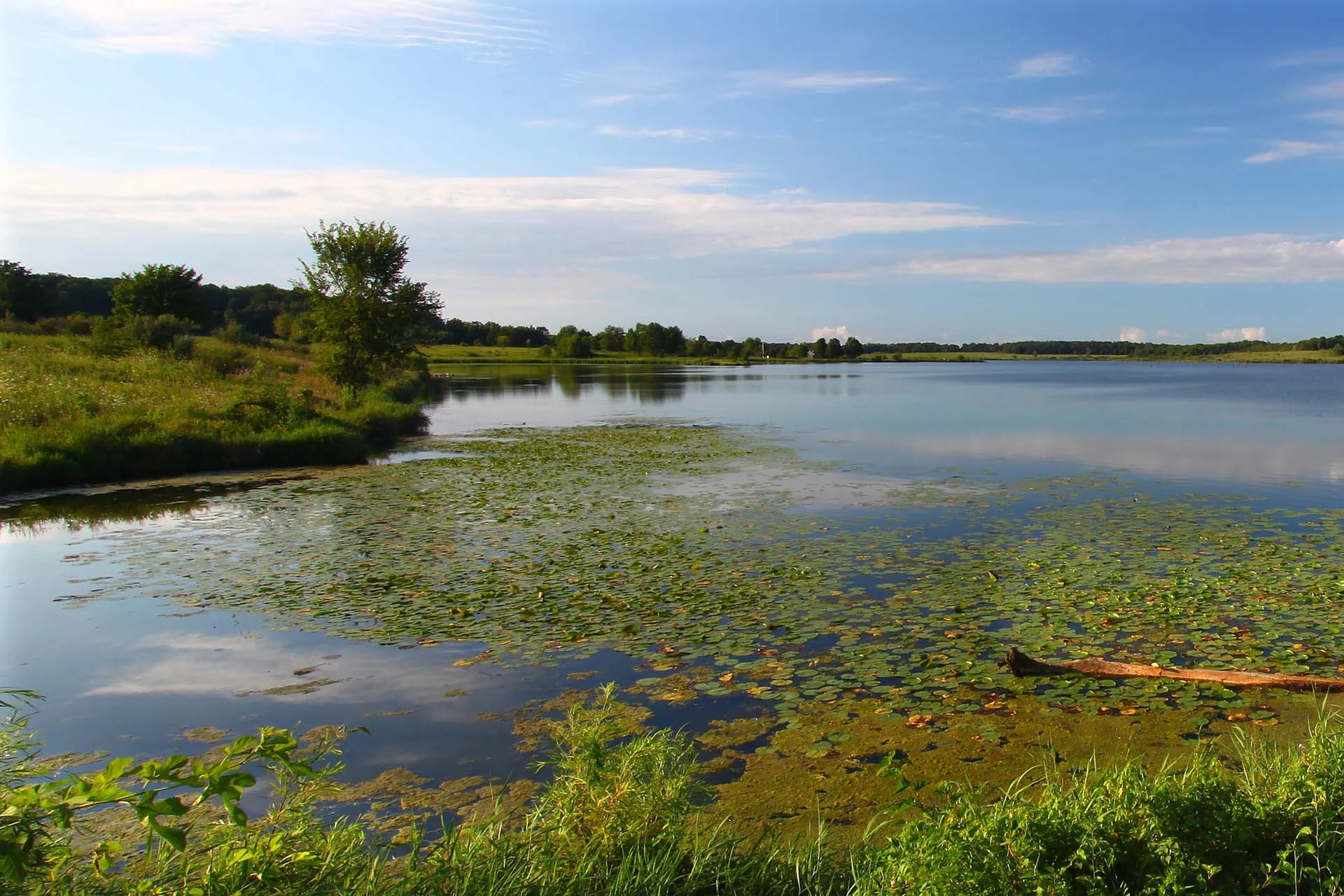A chilly spring morning brought a mix of joy and disbelief to a small gathering in DeKalb County, Illinois. Representatives of the Prairie Band Potawatomi Nation stood together near a tract of grassland that once was their homeland. Smiles, tears, and a quiet sense of relief filled the air. After nearly two centuries of legal battles, broken treaties, and journeys back and forth between Kansas and Illinois, the federal government had finally recognized their reservation rights in the state. The land that had been swept from their hands more than 175 years ago was at last being returned.
For many families in the area—both tribal members and non-Native residents—this development was more than a piece of government paperwork. It was a powerful reminder that injustices can be acknowledged, and that healing can start when officials and communities decide to right the past. Longtime residents of the region often heard rumors about a Potawatomi leader named Chief Shab-eh-nay, who fought for his land even after discovering that it was wrongfully sold during his brief visit to extended family. Now, a new chapter in that story is being written.
Below is a closer look at how the Prairie Band Potawatomi Nation regained formal trust status for part of their ancestral land, why this story matters far beyond Illinois, and how a state park and a determined grassroots movement made history by forging a new path forward.
The Return of Shab-eh-nay Reservation Land
On April 19, 2024, the U.S. Department of the Interior placed portions of Prairie Band Potawatomi Nation’s northern Illinois reservation into trust. This action confirmed the tribe’s standing as the only federally recognized Tribal Nation in Illinois. Suddenly, a spot in DeKalb County that once seemed lost to time was back under the sovereignty of those who have deep roots there.
The tribe’s Chairman, Joseph “Zeke” Rupnick, welcomed this as a major step, invoking both pride and solemn reflection. He’s the fourth-generation great-grandson of Chief Shab-eh-nay, who had received 1,280 acres through early treaties but lost it when officials declared his property “abandoned” in 1849. This happened after he left Illinois to visit other Potawatomi families in Kansas, a journey that took weeks on horseback. When he returned, strangers were living in his home, and the state insisted the land was no longer his.
Since that time, multiple lawsuits, federal acknowledgments, and legislative attempts tried to right this wrong. For more than a century, the Prairie Band asked for clear recognition of their connection to the land. They made little headway until recently, when the Department of the Interior reversed years of hesitation, announcing that the Shab-eh-nay Reservation was once again recognized as “Indian country.”
Illinois’ First Federally Recognized Tribe
Although many groups in Illinois trace heritage to the Potawatomi, Kickapoo, Peoria, Miami, and other nations, for decades no reservation existed in the state. The Prairie Band Potawatomi largely resided in northeast Kansas, as directed by 19th-century removal policies, making them a federally recognized tribe there. Yet their claims in Illinois remained in limbo.
That changed in 2024 with the Interior Department’s decision to place 130 acres of repurchased land into trust. This smaller plot set a key precedent. Suddenly, Illinois became home to a federally recognized tribe, fulfilling a longstanding request for official status. The trust acquisition meant the tribe had the freedom to govern that land, confirm its jurisdiction, and assert its rights under federal Indian law. Soon after, the Prairie Band reached agreements with the state to extend these boundaries and look toward the next big milestone: Shabbona Lake State Park.
Shabbona Lake State Park
In the months that followed, Illinois Gov. JB Pritzker signed Senate Bill 867, directing the state Department of Natural Resources to transfer the 1,500-acre Shabbona Lake State Park to the Prairie Band Potawatomi. The move was unprecedented. State legislators called it “the right side of history,” acknowledging the tribe’s rightful stake in a place that once stood within their two-square-mile reservation. Official records show that, by law, the land was to remain in Chief Shab-eh-nay’s family forever. Yet, the state assembly had labeled it deserted, selling it at public auction while Shab-eh-nay was away.
Chairman Rupnick described the handover of this scenic park as an act of “healing and respect,” especially considering that the Prairie Band agreed to keep the park open for public use. This highlights a willingness to share the land—while reclaiming the stewardship that was lost. Plans do not include building a casino or developing large commercial projects. The Prairie Band views the site as a precious link to their past, and they want to keep it available for visitors and local residents alike.
One Reservation, Many Voices
Bringing the Shab-eh-nay Reservation back under tribal governance required patience, political support, and thoughtful planning. Elected officials such as U.S. Rep. Lauren Underwood (IL-14) and U.S. Senator Roger Marshall (KS) offered a helping hand. Underwood lauded the trust decision as an “important step,” underscoring the 175-year wait. Meanwhile, Senator Marshall co-sponsored S. 1492—legislation aimed at fully resolving the tribe’s legal claims and addressing any questions local governments and area residents have about zoning, taxes, and other practical concerns.
Local homeowners wondered what these changes would mean for their property. The Prairie Band repeatedly stated that current residents who live within the old reservation boundaries would keep their homes. There is no plan to evict anyone or take back private parcels. By showing sensitivity to the current residents’ concerns, the tribe aimed to minimize friction and keep the focus on reestablishing their presence and rights.
How the Land Was Lost
The foundation of the Prairie Band’s claim dates to the 1829 Treaty of Prairie du Chien and the 1833 Treaty of Chicago. In the 1829 agreement, Chief Shab-eh-nay was promised 1,280 acres in what is now DeKalb County, intended to remain in his family forever. That pact was later overshadowed by the 1833 Treaty of Chicago, in which the Potawatomi, Chippewa, and Ottawa ceded five million acres across Illinois, Michigan, and Wisconsin in exchange for land west of the Mississippi. Even then, the two-square-mile property for Chief Shab-eh-nay was excluded from the land cession—he was meant to keep it. But in the post-treaty chaos of Indian Removal, officials in Illinois treated it as vacant when he traveled out of state.
For generations, the Prairie Band sought to prove that this sale was never authorized by Congress and was therefore illegal. Letters and documents from the U.S. Department of the Interior, spanning as far back as 2001, acknowledged the tribe had a sound legal argument. Yet, no official steps were taken to correct the matter. So the land was stuck in limbo—claimed by private owners, recognized by local government, but never fully cleared of the suspicion that something had gone wrong. This tension shaped decades of local rumor and debate.

Legislation Sparks a New Reality
Momentum shifted when Illinois lawmakers took up Senate Bill 867. This legislation allowed the Illinois Department of Natural Resources to negotiate a transfer of Shabbona Lake State Park to the Prairie Band. The arrangement calls for the tribe to maintain recreational access to the park, which is a popular site for fishing, camping, and family outings. State Sen. Mark Walker, who championed the bill, described it as more than a land deal; it is a step toward “justice for the original inhabitants.”
For many, the idea of “Land Back” is an abstract concept, but in DeKalb County, it is now a concrete policy. The “Land Back” movement generally seeks to restore Indigenous stewardship and ownership where treaties or other legal mechanisms support such actions. The Prairie Band’s success in Illinois shows that it can happen with bipartisan cooperation, even in regions far from major tribal population centers.
Managing Complicated Legacies
While some welcomed the news, others feared a cascade of demands from other Native groups. Still, tribal leaders say each treaty is unique, and each instance of possible wrongful land sales has its own facts. They also stress that these processes don’t lead to forced evictions. Instead, they aim for recognition, reparation, and a future shaped by collaboration.
West of the Mississippi, many Potawatomi who relocated to Kansas decades ago wonder how the Illinois land can once again be part of their heritage. For them, the newly recognized reservation offers a chance to see the birth site of their ancestors, to share traditions, and to tell their children that they are going back to a place that was never truly forgotten. This unity extends beyond the Prairie Band itself. Some Potawatomi communities remain scattered in Wisconsin, Michigan, Indiana, and elsewhere. The trust acquisition could encourage more visits and a larger network of cultural exchange.
A Message for Other Communities
The Prairie Band’s story highlights that federal laws can be shifted by those who are determined to address old wrongs. It took decades of research, legal filings, and relationship-building with state and federal governments. A host of individuals played a role: attorneys, genealogists, historians, archaeologists, and everyday citizens. They gathered evidence from the original treaties, some of which date to the early 1800s, and compiled testimonies that Chief Shab-eh-nay had never given up his land.
Leaders of the Land Back movement say this proves that community-driven efforts, paired with legislative willingness, can lead to meaningful outcomes. Of course, not every tribe has a strong treaty claim or a parcel of land that can be “returned” in the same way. But the Prairie Band case serves as an example that change is possible if the relevant documents still exist and there is a readiness among local and national leaders to pursue fairness.
Bridging Divides
DeKalb County residents have generally responded with a blend of support and curiosity. Some appreciate the chance to learn a piece of local history they never knew. Others are concerned about taxes, building codes, and how the trust status will affect local government budgets. Tribal leaders promise to cooperate with officials to clarify those details, continuing the approach that has involved transparent dialogue, public statements, and consistent meetings with the local community.
One theme stands out: the land will not suddenly be shut off to outsiders. Shabbona Lake State Park is to remain a public destination, although the tribe is free to shape certain parts of its operations. The Prairie Band, grateful for the chance to reconnect with an ancestral home, has expressed a desire to share knowledge and be good neighbors. This mutual respect could become a blueprint for other states considering similar transfers.
A Journey Completed, A New One Begins
For the Prairie Band Potawatomi, gaining official trust status for their Illinois reservation is about more than a patch of ground. It is a statement that a piece of history, once twisted by ignorance and expediency, can be corrected. When Chief Shab-eh-nay returned from Kansas almost two centuries ago, he found his house removed and squatters occupying his land. Today, his descendants have a measure of justice—along with the responsibility to honor that land and care for it.
Yet, the story doesn’t end with a single trust decision or a single land transfer. Senators and representatives involved in the settlement legislation still must craft laws that address the entire puzzle—protecting the rights of current residents, clarifying the legal framework, and ensuring stable local services. But there’s hope that with the big steps already taken, future talks will be more about practical details than existential doubts about who belongs.
This sense of shared destiny is what Chairmen like Rupnick and state leaders like Gov. Pritzker emphasize: the work is ongoing, and everyone has a stake in finishing it. Even though it’s taken far too long, there’s a sense that patience and empathy are paying off.
Where the Path Leads
What does the Prairie Band’s success mean for other Indigenous communities? One key lesson is the importance of documented treaties and historic records. Another is collaboration across party lines—federal agencies, state governments, and tribal authorities all found ways to unite around a basic idea: If the land was taken improperly, and if the tribe still has a legal foundation, then it’s never too late to correct the mistake.
While the Prairie Band’s focus remains on sustaining its culture and heritage in both Kansas and Illinois, the conversation has extended to neighboring states. Campaigns in Wisconsin and Michigan look with interest at what has happened in DeKalb County, reflecting on the real possibility that lost homes can be reclaimed. At its heart, that is the power of reaffirming a reservation: a renewal of identity, a chance to pass on stories, and the promise that children will know exactly where their people came from.
If you drive to Shabbona Lake State Park in the coming year, you might see new signs that honor the Prairie Band Potawatomi. Tribal members are planning events to share their history and highlight the Potawatomi language, arts, and customs. Local school teachers might set aside time to bring students on field trips, letting them learn that the story of the land is bigger and more complicated than textbooks once hinted. This could help a new generation see the world with open eyes, embracing the idea that justice for one group can enrich an entire community.
Reflecting on a Milestone
The Prairie Band Potawatomi Nation’s return to Illinois reservation land is a milestone that combines legal victories with deep emotional resonance. It reminds us that even centuries-old losses can be addressed when communities choose to do so. It also reveals a hopeful message: we can find a path forward that does not involve displacing current residents but instead fosters a shared respect for land that carries a wealth of history.
What can you do? If you live near a similar area or are curious about a historical treaty in your region, read about it, ask questions, and talk with local leaders. Communities can build alliances with tribal nations simply by listening and discussing possible remedies. The Prairie Band’s experience suggests that today’s homeowners needn’t lose their own sense of security for an Indigenous nation to gain recognition. The path is never simple, but if Illinois can accomplish it, other states might find a route too.
So the next time you see rolling fields in DeKalb County, remember that each plot of land has a story. For the Prairie Band Potawatomi, that story has reemerged from the pages of long-forgotten treaties. And for the rest of us, it’s a sign that collective memories—both painful and uplifting—can guide progress, if we choose to recognize them.





Imagine riding for weeks on horseback, come back and your house has new people and a Zillow listing 😩
Wow